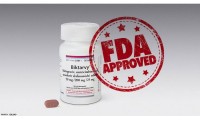-
Cedars-Sinai, Emulate partner to give precision medicine a boost with organs-on-chips tech
- Source: Healthcare IT News
- 918
- February 27, 2018
-
Gilead links with Sangamo in gene therapy alliance
- Source: drugdu
- 808
- February 26, 2018
-
AI Biotech XtalPi Closes Series B Round Funding from Sequoia China, Google, and Tencent
- Source: finance.yahoo
- 801
- February 26, 2018
-
Merck Drops $394 Million to Acquire Virus-Based Cancer Company Viralytics
- Source: Biospace;
- 1,015
- February 26, 2018
-
U.S. Food and Drug Administration Approves Gilead’s Biktarvy® (Bictegravir, Emtricitabine, Tenofovir Alafenamide) for Treatment of HIV-1 Infection
- Source: gilead
- 1,393
- February 26, 2018
-
What’s Driving the Global Surgical Robotics Market
- Source: marketresearch.com
- 1,593
- February 26, 2018
-
Using “Nanodrops” to Repair Corneas Could Ultimately Replace Glasses
- Source: Futurism
- 742
- February 26, 2018
-
Gut bacteria helps fight off sepsis in mice
- Source: fiercebiotech
- 861
- February 24, 2018
-
Novartis’ Ultibro Breezhaler reduces lung hyperinflation in COPD patients
- Source: Pharmatimes
- 914
- February 24, 2018
your submission has already been received.
OK
Subscribe
Please enter a valid Email address!
Submit
The most relevant industry news & insight will be sent to you every two weeks.













